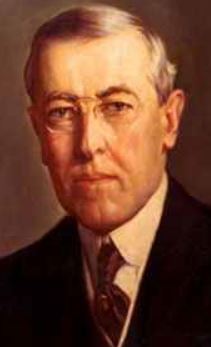
U.S.-Cuba bilateral commission: The first round
HAVANA — This time without the media hullaballoo that has accompanied each step in the process of reestablishing U.S.-Cuba relations, the first round of the bilateral commission established to organize the negotiations between the two countries ended in Havana last week.
As expected, no agreements were reached about specific issues, but the delegations established the issues with the greatest priority and set a timetable to solve the most pressing issues in a 10-to-14-month period. This demonstrates the interest in advancing as far as possible during the remainder of Barack Obama’s term.
The statement issued by the U.S. was very brief, mentioning only a few of the issues discussed and a willingness to continue the negotiations during the rest of the year. A second round was set for December in Washington.
The Cuban Foreign Ministry’s statement was more explicit, indicating that the selected issues are grouped in three blocs:
The first refers to bilateral cooperation on issues that require accords that are basically technical, such as environmental protection, health care and the battle against drug trafficking. Negotiations are proceeding on more than 25 subjects.
The second deals with problems that are of bilateral interest but contain contradictions in appreciation between the parties, such as the trade in humans and human rights, which require that a consensus be established before the issues are tackled.
Lastly, there are the issues “awaiting solution,” issues that are not described but presumably refer to the economic blockade, e.g., the return of the territory occupied by the U.S. naval base at Guantánamo; the end of the United States’ promotion and financing of what Cuba considers to be “subversive programs,” including Radio and TV Martí, and the claims for compensation made by both parties. The latter was the issue on which the discussion focused during the first round of talks.
The way to deal with these conundrums will be through the establishment of working groups joined by experts on each issue. The work of the Bilateral Commission will be to monitor and expedite those processes.

Not casually, and in coincidence with the commission meeting, President Obama announced that he will keep Cuba on the list of countries punished by the 1917 Trading With the Enemy Act, a list that contains only one country: Cuba.
However, it is evident that this was not a hostile act but, in my opinion, a way for Obama to formalize an explanation to the Cuban side of the reasons that led him to that decision, based on the judgment that removing Cuba from the list would reduce the President’s executive powers to give flexibility to the economic blockade until Congress decides to eliminate it.
In its statement, the Cuban Foreign Ministry indicated that it understood the reason for such a move and placed the problem of the blockade’s termination on the shoulders of Congress, although it insisted that the President has the power to strip the Act’s most punitive measures, such as the ban on the use of dollars by Cuba in financial transactions, and the United States’ opposition to access by Cuba to international credit. These are basic aspects for the development of the bilateral trade that the U.S. administration claims to wish to promote.
If we review the executive measures adopted so far, we see that most of the aspects involved in their decision have been modified either totally or partially, except those related to financial sanctions, such as those mentioned above.
The reason for this, as I see it, is that through these measures the United States historically has tried to hamper investments from — and trade with — third parties until it feels it’s able to confront international competition in the Cuban market.
However, this vision has been overtaken by events. The interest shown by U.S. businesses in the opportunities offered by the Cuban market, and Cuba’s demonstrated willingness to negotiate justify the opinion that economic relations can advance even under the legal umbrella of the blockade if the President adopts the necessary measures to facilitate such trade.
Many of the measures adopted so far bog down when they run into the financial impediments that still remain. Maybe this explains the postponement of the visit to Cuba (announced in February) of experts from the Departments of the Treasury, Commerce and State, supposedly assigned to explain to the Cuban side the reach and implementation of the measures adopted by President Obama.
It is likely that not even they know how to do it, so long as the established financial restrictions continue to rule.
Although in view of events nothing can be ruled in the process of U.S.-Cuba relations, most of the experts agree that it is unlikely that the blockade will be lifted by Congress before the 2016 national elections.
This makes President Obama the only wielder of sufficient power to modify the blockade in its essence and thus advance in the irreversibility of a policy that has considerably boosted his political capital and is considered to be one of the legacies of his presidency.
In fact, if President Obama says that he needs the Trading With the Enemy Act so as not to weaken his executive powers, we should expect that he will then use them, changing the pattern of what has been a blockade in the financial area. Basically, that’s the remaining change.
The importance of the Bilateral Commission is that it channels the so-called process of normalization of relations between the two countries. Its first round indicates to us that the parties are taking steps with rigor, willingness and respect for each other, following the script that has characterized the negotiations so far and constitutes the basis for its future progress.
Progreso Weekly authorizes the total or partial reproduction of the articles by our journalists, so long as source and author are identified.


